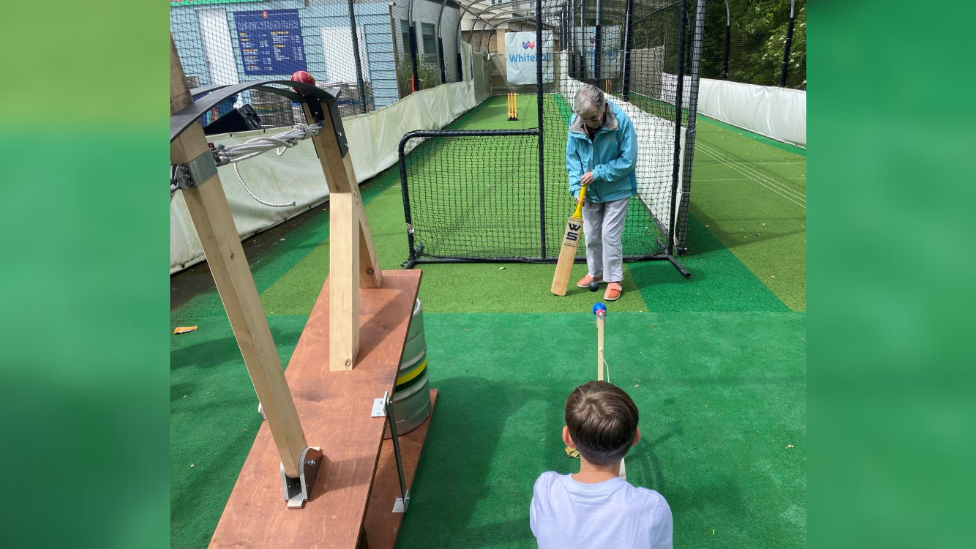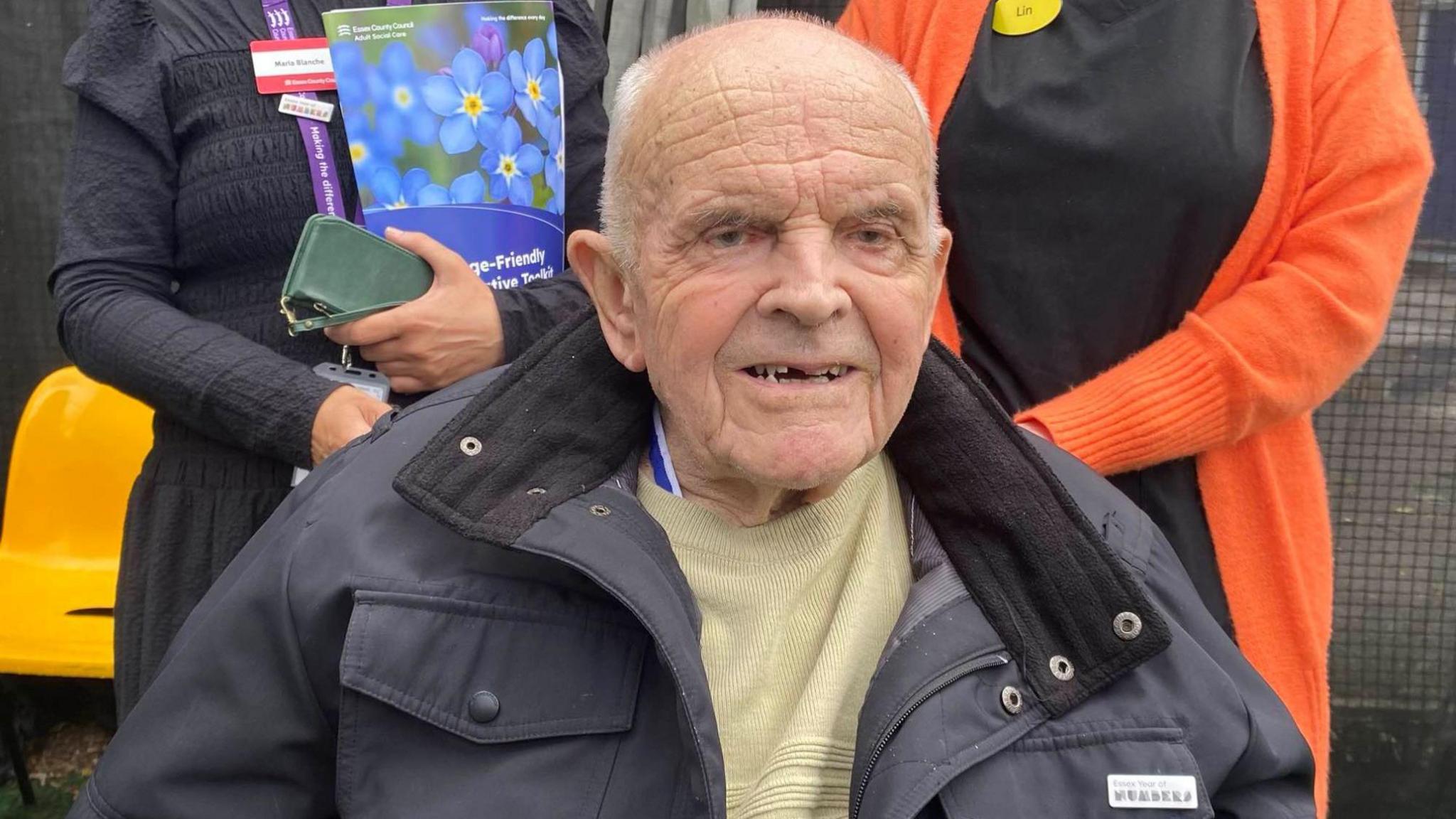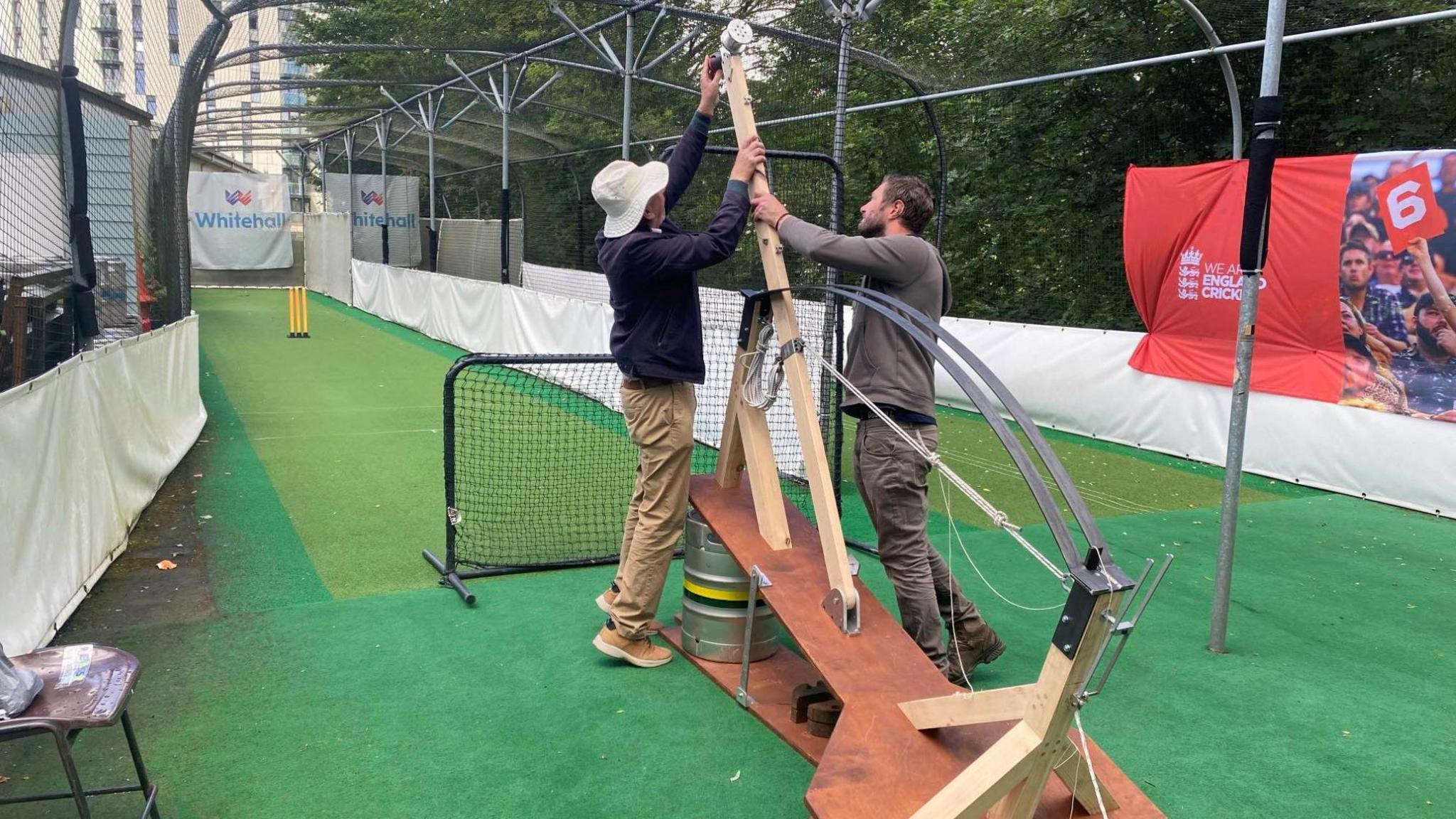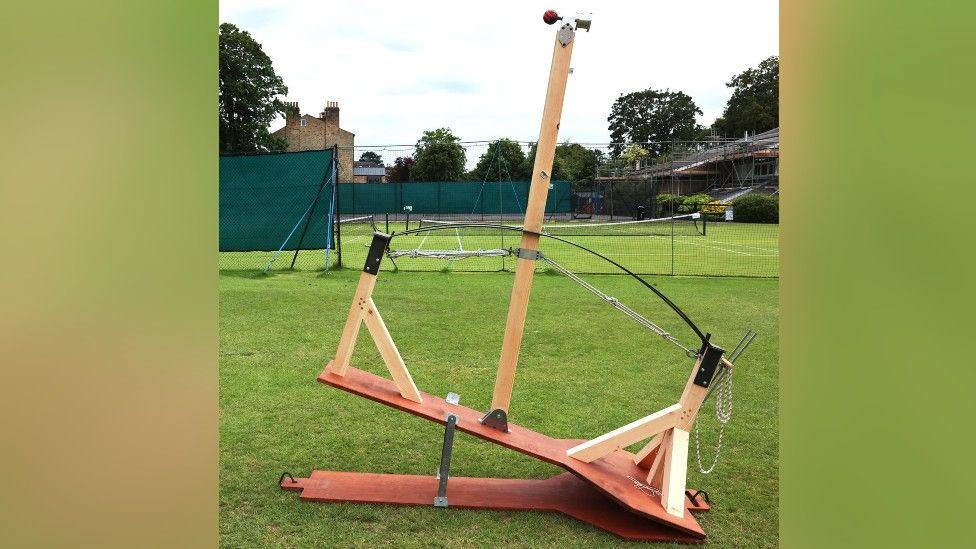Cricket bowling machine inspires love of maths

The cricket event was held at the county ground in Chelmsford on Monday
- Published
A machine designed to bowl at cricketers has been put through its paces by both care home residents and schoolchildren.
The groups went head-to-head at Essex County Cricket Club in Chelmsford as part of a day celebrating maths and engineering.
They enlisted the help of the wooden machine, which was built at the University of Cambridge and was inspired by a similar contraption that once bowled out an Australian international cricketer in 1909.
Among the stars on display was Fred, 93, who managed to get a wicket of his own on Monday.
It came as part of the event run by Essex County Council and its Year of Numbers programme.

Fred says he used to play for his local boys club near Brixton, south London
Fred, from Howard Lodge care home in Kelvedon Hatch, near Brentwood, said he would not rule out playing for Essex after rediscovering his form in his twilight years.
He showed off his skills to youngsters including 10-year-old Erin, from Colchester, who said it was a "really fun" day.
She added that the bowling machine was "powerful".
Unveiled on Monday, it is based on a similar contraption designed by Dr John Venn in the early 1900s.

Prof Hugh Hunt, left, prepared the bowling machine for action
It was created from only a black and white photograph of the 7ft (2m) machine, and a patent application from the time for reference.
When the Australians visited Cambridge in 1909, their star batsman Victor Trumper was bowled out by the machine.
Prof Hugh Hunt, who set the challenge to design the machine, said the way it operated helped to make maths more appealing to children.
"Maths is important to everything and all I would say to kids is 'don’t give up on maths'," the University of Cambridge professor told BBC Essex.
"If you think it’s a bit boring then try to find a way to make it interesting, and this is the kind of way to make it interesting."
Follow Essex news on Facebook, external, Instagram, external and X, external. Got a story? Email eastofenglandnews@bbc.co.uk, external or WhatsApp us on 0800 169 1830
Related topics
- Published10 June 2024
